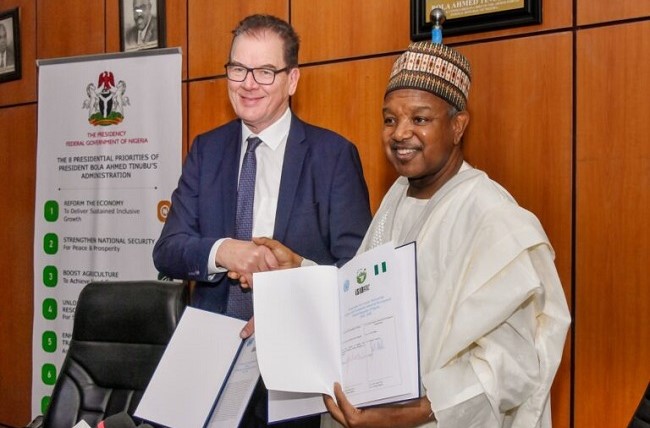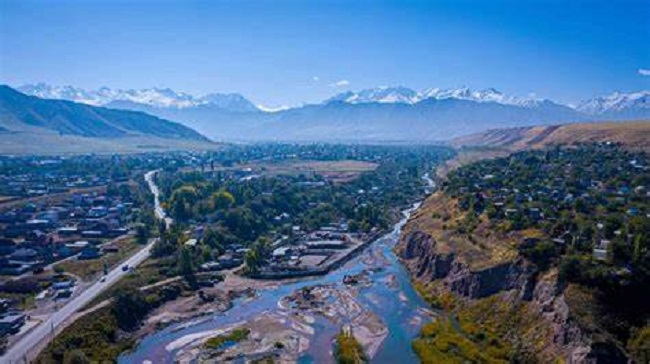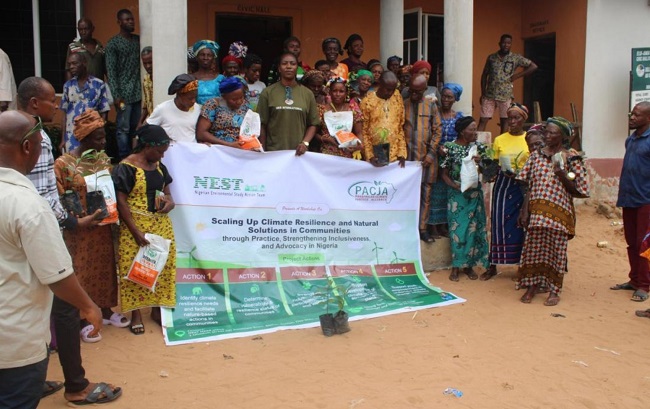International Breweries Plc (IBPLC), one of the world’s largest breweries with over 500 beer brands, has reaffirmed its commitment to sustainability through innovative water conservation initiatives. In commemoration of World Water Day, the company hosted a series of activities across its four breweries, emphasising its dedication and leadership in responsible water management and environmental stewardship.

Reflecting on the company’s unwavering commitment to environmental sustainability, the Managing Director, IBPLC, Carlos Coutino, said: “Water conservation, and equitable access to water should be a basic right of all human beings because water is life and an invaluable resource.
“For us at International Breweries PLC, water is a vital resource in brewing, and we make deliberate efforts to conserve water. Understanding its importance, we have implemented industry-leading conservation practices, ensuring compliance with environmental regulations and minimising our ecological footprint.”
To mark the 2025 World Water Day, IBPLC welcomed stakeholders to tours across its four breweries to witness, firsthand, the company’s advanced water conservation systems.
During remarks at the IBPLC’s Gateway Brewery tour, the Commissioner for Environment, Ogun State, Ola Oresanya, who was represented by Abayomi Hunpe, the Special Adviser to Ogun State Governor on Ogun State Waste Management Authority (OGWAMA), noted that the physical inspections of IBPLC’s plant proved that the foremost brewer is doing great things around water conservation to ensure that it meets global standards.
“I want other companies to emulate what IBPLC is doing here. The company is striving as much as possible to meet the global standard in water conservation, as they celebrate World Water Day,” he noted.
At the Port Harcourt brewery of IBPLC, the Director, Ministry of Environment, Pollution Department, Joan Tenny-Igoma, expressed her delight for the company’s water stewardship.
“I was truly impressed by the plant’s commitment to water conservation. The water recovery machine is a testament to the fact that you not only value water, but also creatively utilize it to minimize waste. This is a shining example of responsible water management,” Tenny-Igoma noted.
Recognising that sustainability begins from within, IBPLC also organised a townhall session to educate employees on the company’s water conservation efforts. This session provided staff with valuable insights into IBPLC’s sustainability initiatives, empowering them to become advocates for water conservation within and beyond the organisation.
Beyond World Water Day, IBPLC has continuously demonstrated its commitment to sustainable water management. The company has donated solar-powered boreholes to several communities where it operates, including communities in Anambra, Rivers, Ogun, and Osun states. These boreholes provide potable, clean and reliable water sources, significantly improving the quality of life for residents in these regions.
This year, Logbara community in Ogun State received a donation of solar-powered borehole as part of the company’s corporate social responsibility.
International Breweries says it remains steadfast in integrating sustainable practices across its operations. From responsible sourcing of raw materials to pioneering brewing techniques, the company says it continually invests in technology and processes that enhance efficiency while minimising environmental impact.
“Through strategic partnerships, employee engagement, and community-focused projects, International Breweries Plc is leading the charge towards a more sustainable and water-secured future,” submitted the company.
International Breweries Plc (IBPLC) is a part of Anheuser-Busch InBev (AB InBev), the world’s largest brewer with over 500 brands. IBPLC is the producer of Trophy Lager, Trophy Extra Stout, Hero Lager, Castle Lite, Budweiser, Flying Fish Beta Malt, and Grand Malt, among other beverages.
“As part of a global brand, International Breweries has a dream of bringing people together for a Future with More Cheers through the building of great brands that stand the test of time using the finest natural ingredients,” the company stated.










